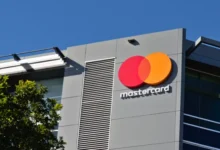
When the first case of the coronavirus was reported in China and later to different parts of the world, the world economy came to a standstill. The impact of the coronavirus pandemic has been heavily felt in all around the world economies, including Kenya.
Since then, governments and researchers have been putting their heads together to develop a vaccine to curb the spread of the virus, which has not only adversely affected the economy but also taken away lives in shocking numbers.
On January 30th 2020, the World Health Organization (WHO) declared that the COVID-19 outbreak constituted a Public Health Emergency of International Concern (PHEIC). Scientists from across the world then met at WHO’s headwaters in Geneva in February 2020 to assess the current level of knowledge about the new virus. The aim of this meeting according to WHO was to also ‘’… agree on critical research questions that need to be answered urgently, and to find ways to work together to accelerate and fund priority research to curtail this outbreak and prepare for those in the future.’’
The discussion led to an agreement on two main goals. The first was to accelerate innovative research to help contain the spread of the epidemic and facilitate care for those affected. The second was to support research priorities that contribute to global research platforms in hopes of learning from the current pandemic response to better prepare for the next unforeseen epidemic.
Several researchers have so far already developed vaccines with the challenge of making it available to people around the world.
In December 2020, countries like the United Kingdom had already begun the rollout of a vaccine developed by pharmaceutical companies Pfizer and BioNTech, something WHO Chief, Tedros Adhanom Ghebreyesus, described as outstanding.
“To have safe and effective vaccines against a virus that was completely unknown to us only a year ago is an astounding scientific achievement”, said WHO Chief, while speaking during his regular briefings from Geneva. “But an even greater achievement would be to ensure all countries enjoy the benefits of science equitably,” he added.
Fortunately, the international community has already established a mechanism, known as the COVAX Facility, aimed at ensuring all countries will have equal access to any vaccines, once developed. WHO says Nearly 190 countries are participating, and the goal is to deliver two billion doses by the end of 2021.
Funding For COVID-19 Vaccines.
By August 2020, Devex reported that an analysis of data available on its funding database revealed over $39.5 billion in funding had been announced for vaccine research and development. This is in addition to planning for vaccine manufacturing and distribution.
These announcements were tracked between January 1 and August 16. They showed that vaccine support and development are priorities for funding by governments, bilateral and multilateral organizations, NGOs, and the private sector.
WHO also reported in November that over US$ 2 billion has been raised to support equitable access to COVID vaccine with an additional US$ 5 billion needed in 2021.
The approximately US$360 million in commitments included US$350m announced at the Paris Peace Forum by the European Commission, France, Spain and The Bill & Melinda Gates Foundation, as well as US$10 million made by the Republic of Korea. These funds are to be used to support the WHO’s Gavi COVAX AMC, a financing mechanism that will support 92 low- and middle-income economies’ access to safe and effective COVID-19 vaccines.
For countries like Kenya, the COVID vaccine is not yet here but the country will vaccinate 16 million people against Covid-19 by June 2022.
Kenya is expected to receive 11 million additional doses of the Covid-19 vaccine from the African Union (AU), bringing the total number of expected doses for the country to 47 million. The AU has secured a deal to procure 270 million doses for all its member states.
Follow us on Telegram, Twitter, Facebook, or subscribe to our weekly newsletter to ensure you don’t miss out on any future updates.




